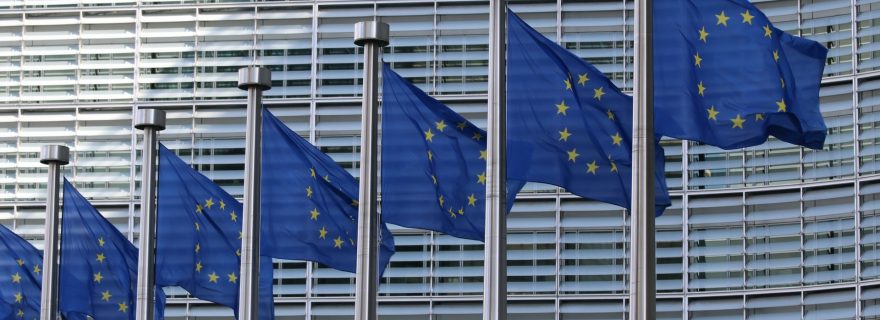The Dutch implementation of the EU framework for the screening of Foreign Direct Investments
The implementation of an EU Framework for the screening of Foreign Direct Investments, the Act on Economy and National Security and several sector-specific laws befit this era and a world with geopolitical threats
The EU holds the internal market and thus the free movement of capital dear. In that light, an EU framework for national screening mechanisms of foreign direct investments (FDIs) that leaves the Member States plenty of space to fill in the details might seem contradictory. Would the screening of FDIs not hamper the free movement of capital?
When the EU framework was introduced executive vice-president Valdis Dombrovskis said: “The EU is and will remain open to foreign investment. But this openness is not unconditional. To respond to today's economic challenges, safeguard key European assets and protect collective security, EU Member States and the Commission need to be working closely together. If we want to achieve an open strategic autonomy, having an efficient EU-wide investment screening cooperation is essential. We are now well equipped for that.”
The EU does not shy away from measures against possible geopolitical threats as a recent example with regard to telecommunication products of Huawei shows. The Chinese telecommunication company Huawei was accused of transferring confidential information to the Chinese Government. Although no ban was introduced, the EU did consider a ban on Huawei products from the EU market. The Commission even called for national screening measures with regard to healthcare capacity in the face of the vulnerability of companies caused by the COVID-19 pandemic and rising geopolitical tensions to ensure “a strong EU-wide approach to foreign investment screening at a time of public health crisis and related economic vulnerability.”
So can the EU maintain that it is open to investments with the EU regulation being operational as of 11 October 2020? An analysis of the Dutch framework of screening mechanisms and its compatibility with the EU framework sheds light on the matter and illustrates that the EU framework does not necessarily mean that the EU is less open to investments and that screening of FDIs do not burden the free movement unreasonably.
The EU Framework for screening of foreign direct investments (EU FDI framework) was introduced to give Member States a framework for national screening rules. The EU FDI framework leaves Member States a wide scope to fill in the details of the national screening mechanisms. There are no obligations to conduct a screening or to introduce a screening mechanism. It mainly introduces a cooperation mechanism. For example, it offers the possibility for Member States to express their concerns when another Member State does not put a particular foreign direct investment under scrutiny. The regulation lays down a few core requirements with regard to national screening mechanisms, but the actual policy decisions are left to the Member States. The Netherlands implemented this framework with the Implementation Act on Foreign Direct Investment, which came into effect on 4 December 2020.
The Member States have the same discretionary competence to decide upon the exact regime for the screening of FDIs. The Netherlands is preparing the enactment of the Act on Reviewing the Economy and National Security (Wet toetsing economie en nationale veiligheid). With this act, the Dutch legislature intends to introduce a more general screening mechanism, which will be an addition to the implementation of the FDI framework. Pursuant to this Act and the EU FDI framework, there is a duty to report to the Ministry of Economic Affairs in case of activities that lead to a change of control or an increase of significant influence in a target company (being a provider of vital infrastructure including certain suppliers of vital processes or developing sensitive technology that affects national security). An entity is in ‘control’ when it has the possibility to exercise decisive influence on activities of the company. If the Minister of Economic Affairs concludes that national security is at risk, they have the power to intervene. They can prohibit or set requirements for the activity concerned and appoint a security officer. Interestingly, this future Act on Reviewing the Economy and National Security will have a retroactive effect so that acquisitions before the introduction – i.e. acquisitions made in the period from 2 June 2020 until the introduction – also fall within the scope of the act.
This Dutch screening regulation will be applicable to industries that do not already have their own screening regulations, like the gas and electricity industry, or the telecommunication industry that has its own screening regime since 1 October 2020 when a new law entered into force: The law and decree on Unwanted Control Telecommunication (Wet en Besluit ongewenste zeggenschap telecommunicatie).
The Act on Reviewing the Economy and National Security provides a comprehensive system for screening FDIs in the Netherlands. The EU FDI framework expressly allows for such a system since it leaves plenty of room for the Member States to flesh out the details. It does not make introducing screening mechanisms mandatory. In our opinion, the implemented EU FDI Framework, the Act on the Economy and National Security, and the several-sector specific laws, cannot be seen as unreasonable limitations on the free market. The scope of the regulation is narrow, and limitations only occur when this is necessary to maintain law and order and to safeguard national security. Time will tell.




0 Comments
Add a comment